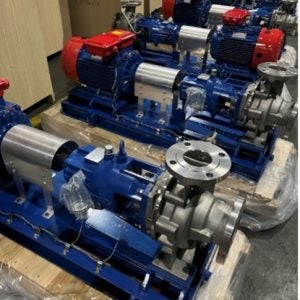According to local press reports, the delay of the El-Dabaa NPP to 2030 instead of 2028 reported earlier in July is due to underlying tension in relations with Russia. Egyptian Nuclear and Radiological Regulatory Authority spokesman Karim al-Adham confirmed the delay statements to the Egyptian economic newspaper Enterprise on 14 July, citing the disruption caused by the coronavirus pandemic as the reason.
Adham said that construction works for the nuclear plant will not start for another year, as regulators are now expected to construction licences in mid-2022. They were previously scheduled to be issued in the second half of 2021. The newspaper said Adham refused to provide more information about the reasons for the delay and denied that there were any financial impediments.
Recent press speculation, however, linked the delay with wider tensions in relations between Egypt and Russia, in particular over the Grand Ethiopian Renaissance Dam (GERD). Egypt and Sudan are vehemently opposed to GERD which they say could reduce the availability of freshwater and cause serious harm to the food security and livelihoods. Commenting on the Egyptian-Russian relations, Tarek Fahmy, a political science professor at Cairo University, told Al-Monitor they have been always unstable. “The postponement of the completion of the El-Dabaa nuclear project is certainly related to the tension between Egypt and Russia,” he said. “This tension manifested clearly after Russia’s stance in the Security Council session on the GERD and following Ethiopia's announcement of signing a military agreement with Russia” signed on 12 July.
Fahmy further argued that this should be seen in the broader context of US influence in Egypt noting that Egypt had participated in the Sea Breeze naval exercises in the Black Sea region in late June hosted by the US and Ukrainian navies off the disputed Crimean Peninsula. despite Russian threats to fire on intruding ships.”
Al-Araby Al-Jadeed reported on 19 July that Egypt had suspended planned meetings with Rosatom, again citing tensions over GERD.
The technical meetings were due to be held with the Egyptian electricity ministry, the paper said, adding that senior technical representatives from the ministry and the nuclear authority had been prevented from going to Moscow by the Egyptian authorities.
However, Fahmy believes the El Dabaa project will nevertheless go ahead as it is important to both sides.
The El Dabaa NPP, sited on the Mediterranean coast, will comprise four 1200MWe units with a Generation III+ VVER-1200 reactor. It is being constructed by Rosatom in accordance with a suite of contracts that entered into force in December 2017. According to the contract, Russia will also supply nuclear fuel throughout the lifecycle of the nuclear plant, arrange for the training of the Egyptian personnel, and will assist in the operation and maintenance of the plant for the first 10 years of its operation. The investment cost of the project is $30 billion, 85% of which is financed through a $25 billion Russian loan.
In other related areas, Egyptian-Russian relations still seem to be on track. On 23 July the heads of the Egyptian Academy of Scientific Research and Technology (ASRT), President Mahmoud Sakr, and Vice-President Jina al-Fiki, were welcomed at Russia’s Joint Institute for Nuclear Research (JINR) in Dubna to discuss Egypt's participation in JINR, as a full-fledged participating country. JINR Director Grigory Trubnikov noted the high level of cooperation between JINR and Egypt, based on the successful implementation of a roadmap for cooperation signed in 2018. “Egypt is our important strategic partner, he said.
ASRT President Mahmoud Sakr noted that cooperation with JINR has enriched Egyptian science both in the field of personnel training and in the field of physics research. “Egypt is entering a new era of scientific development and is aiming for a new model of the knowledge-based economy. We regard JINR as a strategic partner for the development of new scientific directions in the country, namely supercomputing and radiobiological research, applied and fundamental research and, in particular, high-energy physics, as well as the peaceful use of nuclear energy,” he added.






